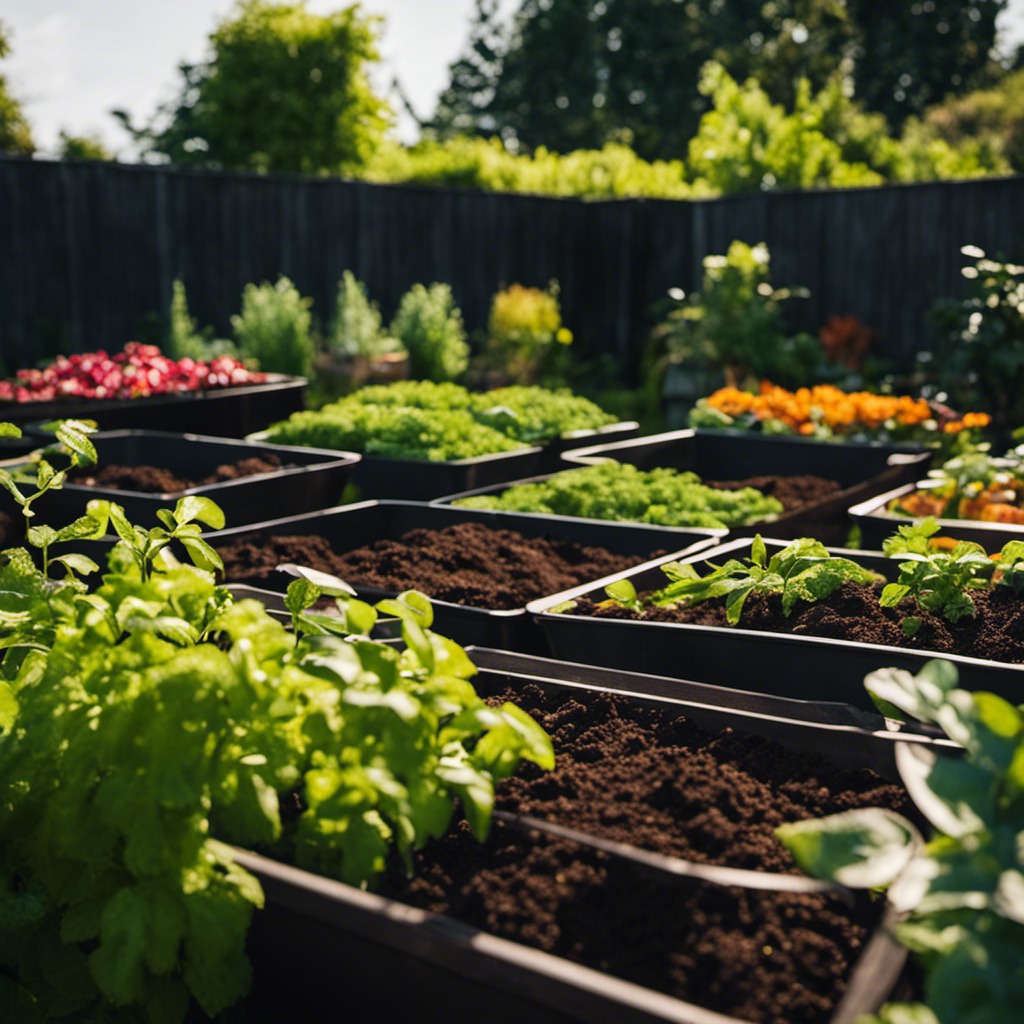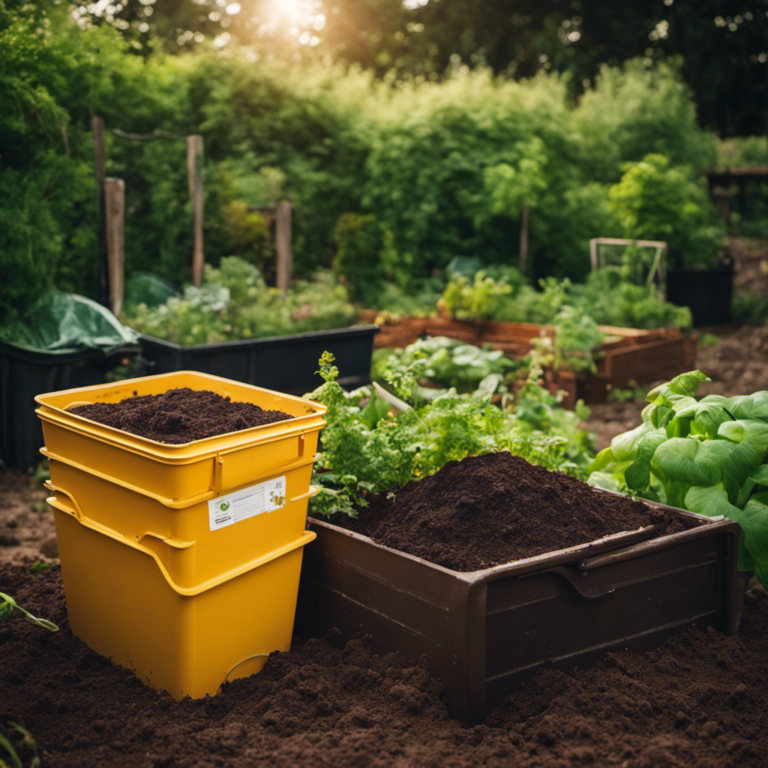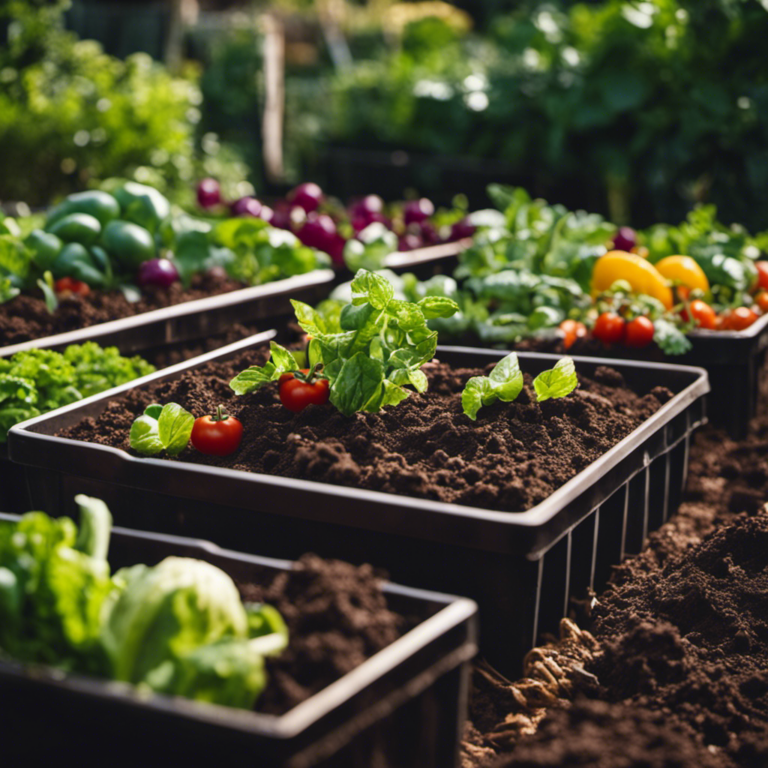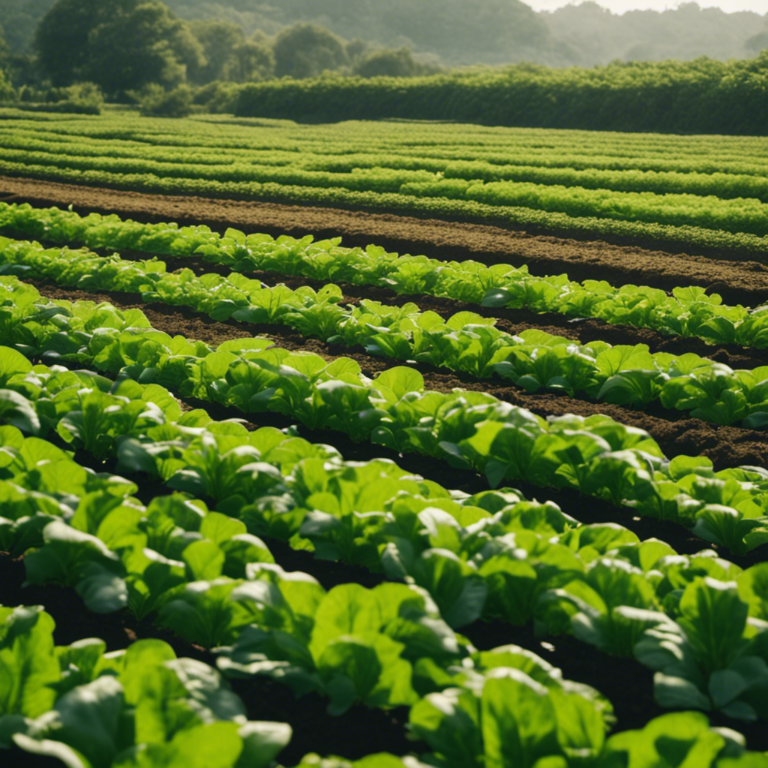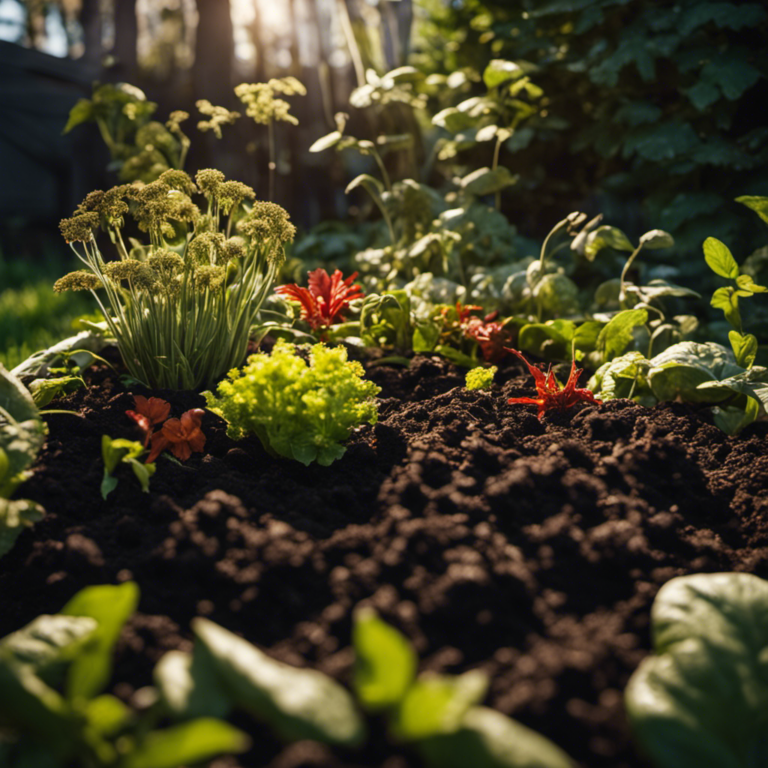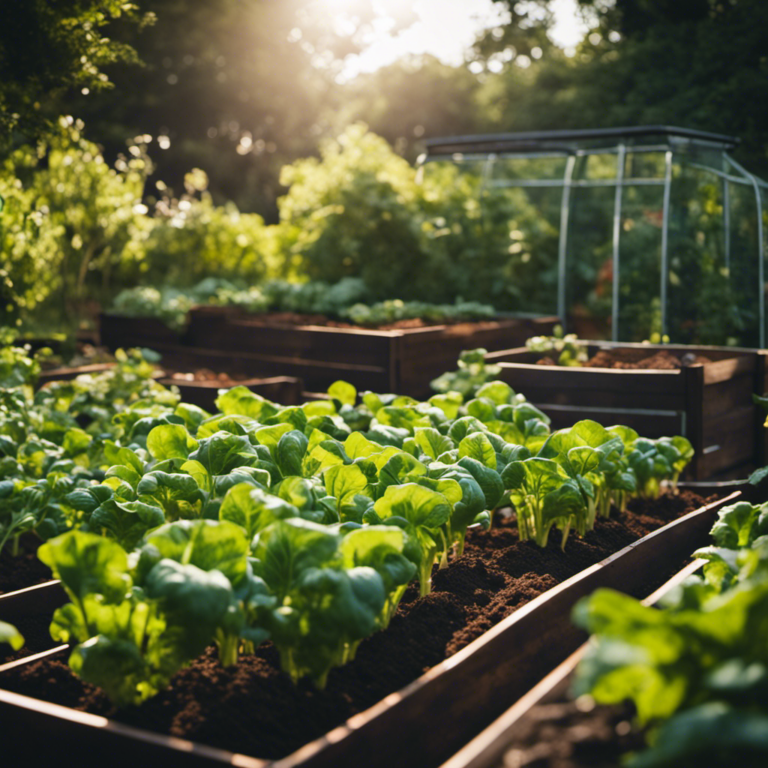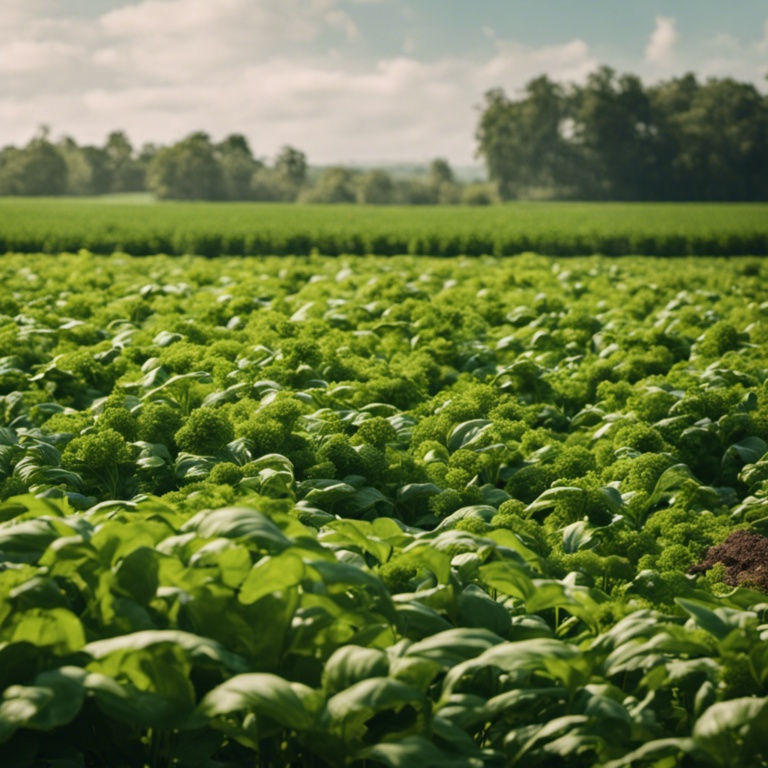As an avid gardener, I have uncovered the secrets to efficient composting in my organic garden.
Let me guide you through carefully selected systems that will transform your composting process.
From traditional methods to innovative techniques like vermicomposting with worms and the bokashi system, I will show you how to convert kitchen scraps into nutrient-rich compost.
Prepare to harness the power of composting and improve your garden’s health, all while benefiting the environment and your fellow gardening enthusiasts.
Key Takeaways
When it comes to composting in organic gardens, there are efficient methods available. One interesting fact to consider is that vermicomposting with worms can produce compost up to 10 times faster than traditional methods. This process involves worms breaking down organic matter and transforming it into nutrient-rich compost, which can greatly benefit your garden. By choosing the composting method that best suits your needs, you can start creating thriving organic gardens today.
Traditional Composting Methods
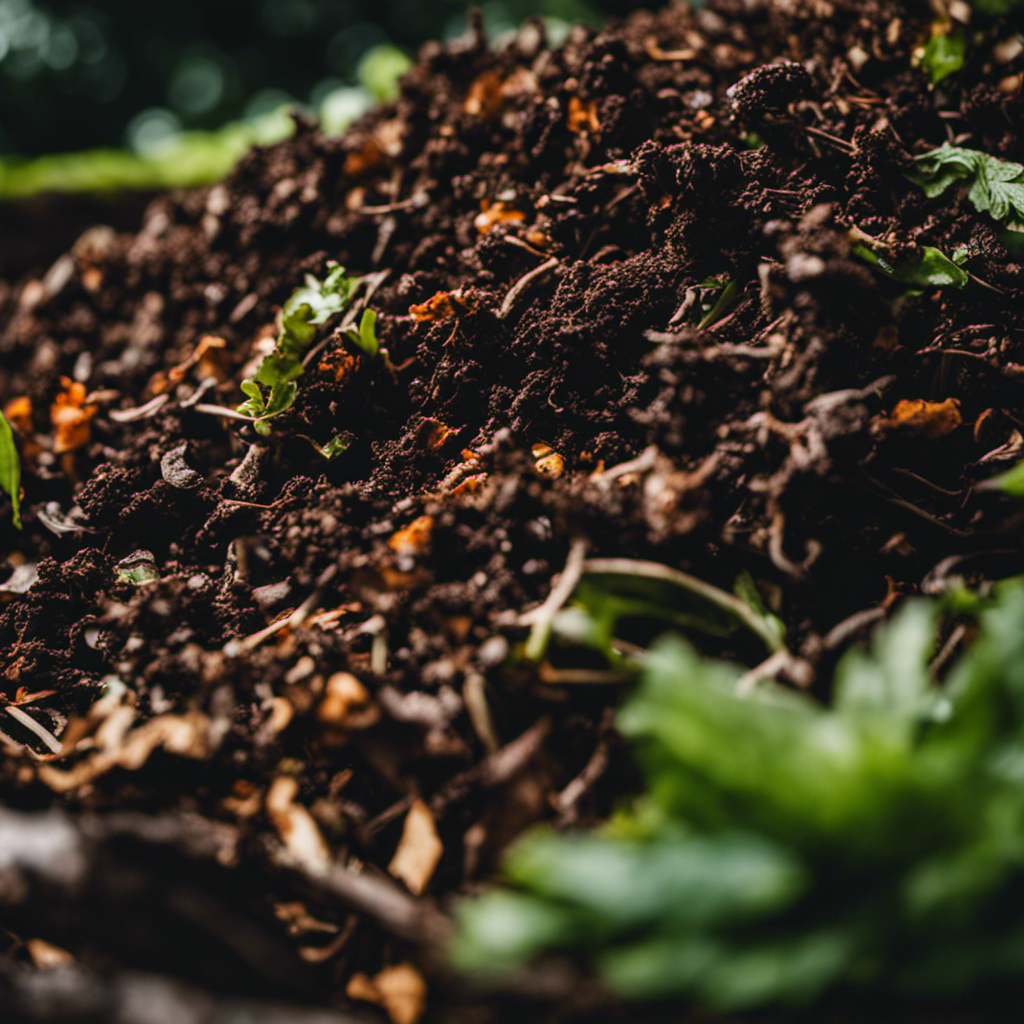
Traditional composting methods, such as using a compost bin or pile, are highly effective for breaking down organic waste into nutrient-rich soil. One popular traditional method is aerated composting, which involves regularly turning the compost pile to introduce oxygen and ensure proper decomposition. This method helps speed up the breakdown of organic matter and prevents the pile from becoming compacted.
Another traditional method is hot composting, where a compost pile is created to reach high temperatures through microbial activity. This method is particularly useful for breaking down tougher materials like branches and twigs. To achieve hot composting, it’s important to balance the carbon to nitrogen ratio and maintain a moisture level of around 50%. This creates an ideal environment for microorganisms to thrive and generate heat as they break down the organic matter.
Both aerated composting and hot composting are excellent options for those looking to create nutrient-rich soil for their gardens. By following these traditional composting methods, you can efficiently transform kitchen scraps, yard waste, and other organic materials into valuable resources that will nourish your plants and promote sustainable gardening practices.
Vermicomposting With Worms
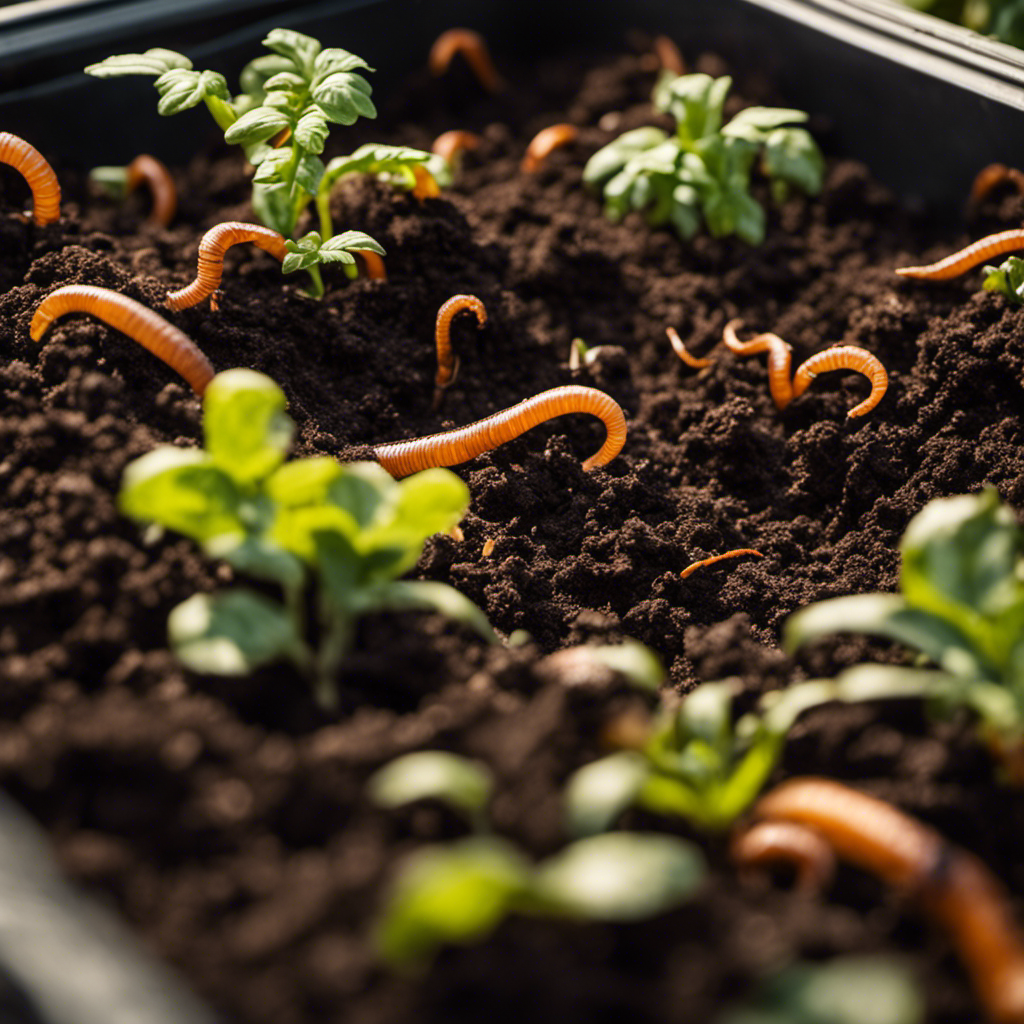
Vermicomposting is a fantastic method for breaking down organic waste in an organic garden. Using worms in vermicomposting offers several benefits. First, it helps to reduce waste by converting kitchen scraps and other organic materials into nutrient-rich compost. This not only reduces landfill waste but also provides a valuable resource for fertilizing plants.
Additionally, vermicomposting with worms can improve soil structure and fertility. The worms break down the organic matter, and their castings, known as vermicast, are packed with beneficial microorganisms that enrich the soil.
To set up a worm bin for vermicomposting, start by choosing a suitable container, such as a plastic or wooden bin with a lid. Make sure the bin has drainage holes at the bottom to prevent excess moisture buildup. Next, add a layer of bedding material like shredded newspaper or cardboard to the bin. Moisten the bedding until it’s damp but not soaking wet. Then, introduce the worms to the bin. Red wigglers, also called Eisenia fetida, are commonly used for vermicomposting. Finally, begin adding organic waste to the bin, such as fruit and vegetable scraps, coffee grounds, and eggshells. Cover the waste with a layer of bedding to control odors and maintain the proper moisture level.
Bokashi Composting System
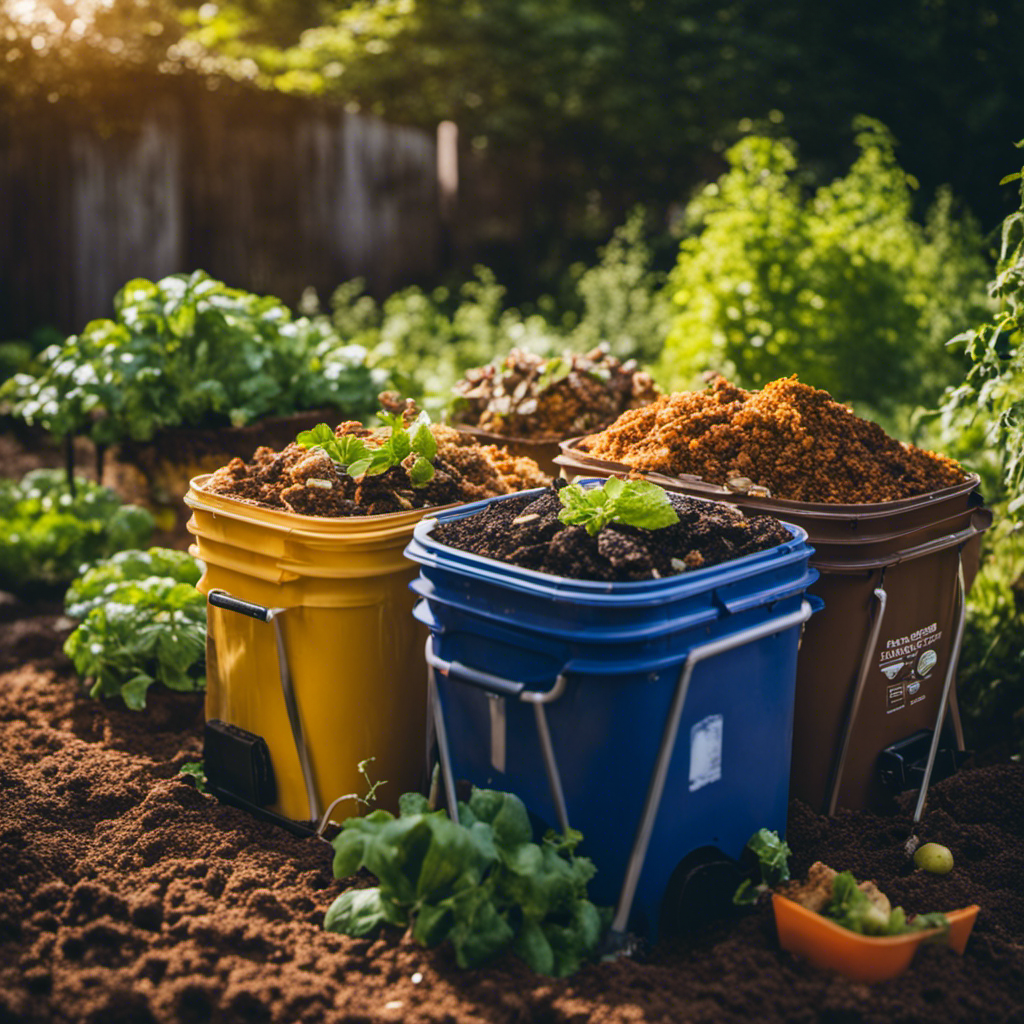
Discussing efficient composting systems in organic gardens, let’s explore the Bokashi Composting System, a method that offers unique advantages for breaking down organic waste.
Bokashi composting is a process that involves fermenting kitchen scraps using a mixture of microorganisms known as Effective Microorganisms (EM).
The benefits of using the Bokashi Composting System are numerous.
First, this system allows for the composting of a wide range of organic waste, including meat, dairy, and cooked foods, which are typically not recommended for traditional composting methods. This means that all food waste can be utilized, reducing landfill waste and creating nutrient-rich compost.
The Bokashi composting process is also faster than traditional composting. The fermentation process breaks down the organic matter quickly, usually taking only a few weeks to complete. This means that compost can be ready for use in your garden in a shorter period of time.
Another advantage of the Bokashi Composting System is its indoor capability, making it a great option for those with limited outdoor space. The process is odorless, making it suitable for apartments and urban settings.
To start the Bokashi composting process, you’ll need a Bokashi bin, which is airtight and has a drainage system. Simply add your kitchen scraps to the bin, sprinkle a handful of Bokashi bran, which contains the EM microorganisms, and press down the contents to remove any air pockets. Repeat this layering process until the bin is full, then seal it tightly. The fermentation process will begin, and you can drain the liquid (known as Bokashi juice) regularly to use as a liquid fertilizer.
Trench Composting Technique
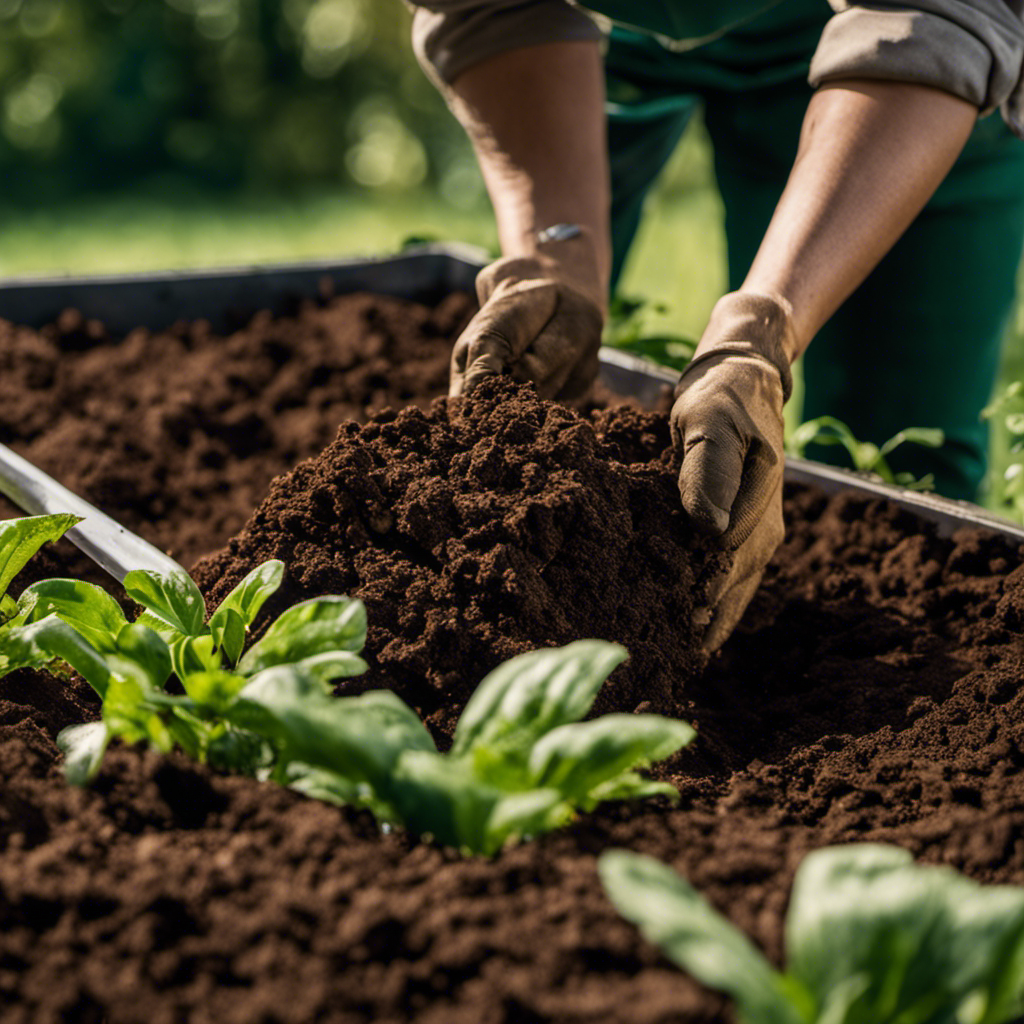
Introducing the Trench Composting Technique
Now, let’s explore an efficient composting technique commonly used in organic gardens: trench composting. This method involves creating a trench in your garden bed and filling it with organic waste to decompose naturally. By practicing trench composting, you can improve the fertility and health of your garden soil while reducing waste and promoting sustainable gardening practices.
Benefits of Trench Composting:
- Nutrient-rich soil: Trench composting enriches the soil with organic matter, providing essential nutrients for plants to thrive.
- Weed control: The decomposing organic matter acts as a natural barrier, suppressing weed growth and reducing the need for constant weeding.
- Water retention: The organic matter in the trench helps the soil retain moisture, reducing the frequency of watering.
- Sustainable waste management: Trench composting allows you to recycle kitchen scraps and yard waste, reducing the amount of waste that goes to landfills.
Steps for Trench Composting:
- Begin by digging a trench in your garden bed, approximately 12-18 inches deep and as long as needed.
- Fill the trench with a mix of kitchen scraps, yard waste, and other organic materials. Alternate layers of green (nitrogen-rich) and brown (carbon-rich) materials.
- Cover the trench with soil, ensuring that all the organic matter is completely buried.
- Water the trench to initiate the decomposition process and promote microbial activity.
Compost Tea Brewing Method
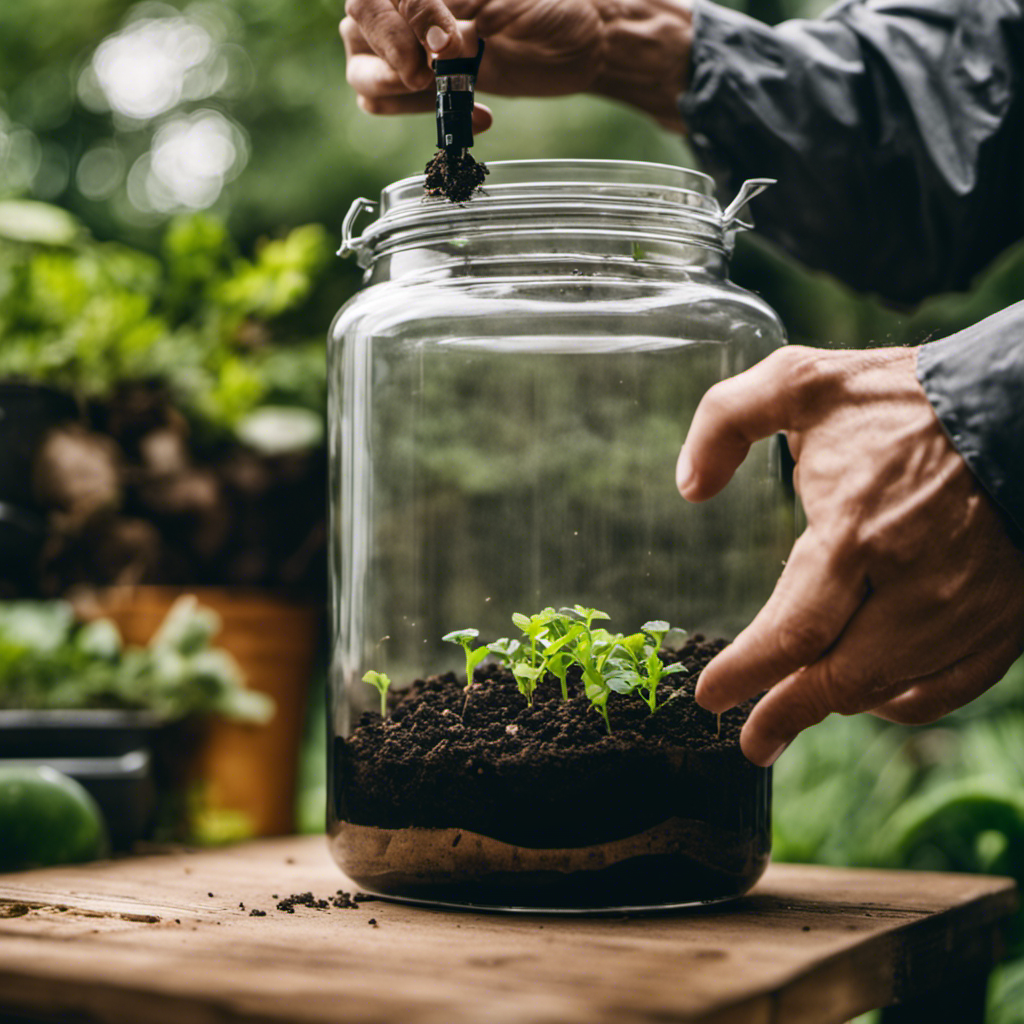
Now, let’s explore the process of brewing compost tea, a method that complements trench composting and improves the nutrient content of your garden soil. Compost tea is a liquid fertilizer created by steeping compost in water. It’s an excellent way to maximize the benefits of your compost and give your plants a nutrient-rich boost.
To brew compost tea, you’ll need an aerated composting system. This can be achieved using a compost tea brewer or a simple DIY setup. The key is to ensure the mixture receives oxygen, as this encourages the growth of beneficial microorganisms.
When designing your composting bin, there are a few factors to consider. The bin should be sturdy and well-ventilated for proper aeration. It should also be large enough to hold a sufficient amount of compost for brewing tea. If you’re using a DIY setup, be sure to include a mechanism for aeration, such as an air pump or an aquarium bubbler.
Once your compost tea brewing system is in place, fill the container with water and add your compost. Allow it to steep for 24-48 hours, stirring occasionally to ensure proper aeration. After the steeping period, strain out the solids and dilute the tea with water before applying it to your plants.
Brewing compost tea is an effective way to harness the benefits of compost and provide your plants with a nutrient-packed liquid fertilizer. By incorporating this method into your organic gardening routine, you can ensure that your plants receive the nourishment they need to thrive.
Conclusion
After exploring different composting methods for organic gardens, it becomes evident that there are efficient and effective options available.
An interesting fact to consider is that vermicomposting with worms can produce compost up to 10 times faster than traditional methods.
This process involves worms breaking down organic matter and transforming it into nutrient-rich compost, which can greatly benefit your garden.
Choose the composting method that best suits your needs and start creating thriving organic gardens today.
